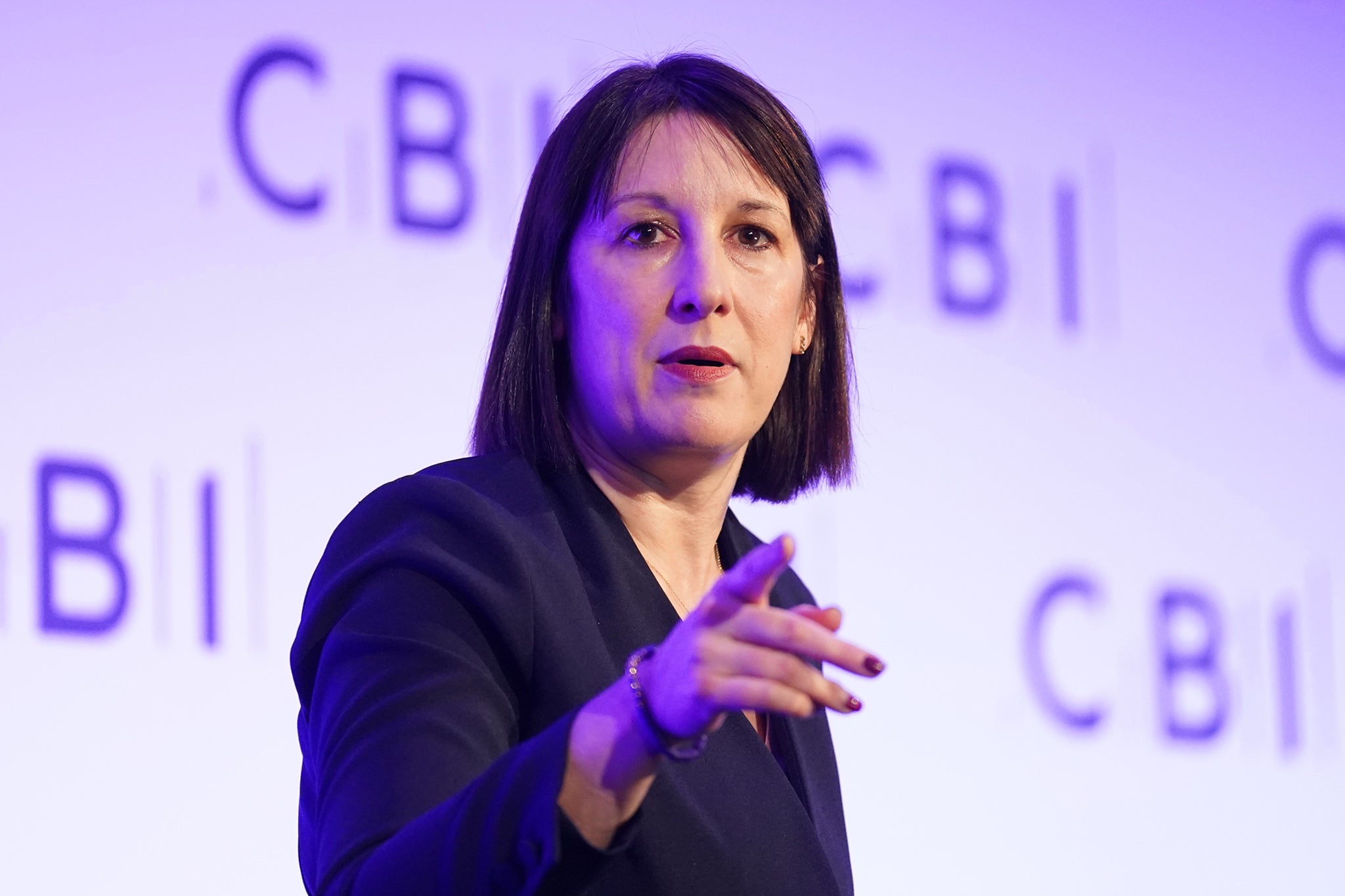Rachel Reeves has been accused by business chiefs of making it hard to invest in Britain, prompting her to insist there was no alternative.
Directly facing her critics at the CBI conference after weeks of negativity about her autumn Budget, a defensive chancellor pledged that businesses in the UK will not have to suffer another one like it before the next election.
Squaring up to her detractors, she told them: “I have heard a lot of feedback about my Budget but not any alternative suggestions.”
Ms Reeves insisted that the government had provided a “rock of stability” so industry can be confident in their future planning.
Businesses have not held back their anger on the increase in national insurance contributions, which has been branded a “jobs tax”.

Salman Amin, the chief executive of McVitie’s owner Pladis, warned: “Going forward, it’s becoming harder to understand what the case for investment is … to make a difference in the growth rate of the economy.”
Speaking about the national insurance hike, co-founder of Cobra Beer Lord Bilimoria told Times Radio: “If they can hear, this is not just me. This is a unanimous voice of business saying you have not listened to us. This is not going to generate growth.
“This is going to damage business. Please listen to us. Please work with us. And I’m up for them to do that. It’s not too late. It’s not too late.”
Ms Reeves’s defiant riposte to the business world also came after the head of the Confederation of British Industry (CBI) claimed that firms were caught “off guard” by the hike in national insurance contributions (NICs).
Rain Newton-Smith, chief executive of the CBI, said the measures announced last month have made it harder for businesses to “take a chance” on hiring new people.
She also criticised the changes to inheritance tax relief for farmers, saying it had left them “fearful” about the future.
In the Budget, the chancellor announced around a £70bn increase in public spending, funded through tax rises and increased borrowing.
Labour also raised the minimum wage, in a move praised by workers’ groups and unions, but which businesses have said will force them to pass on some costs to consumers, hire fewer people or make less profit.
In a message to the government, Ms Newton-Smith said ministers must work more closely with businesses in future after the shock of the Budget.

Speaking after Ms Reeves at the business group’s annual conference, CBI chairman Rupert Soames made it clear he was unconvinced by her words, claiming that businesses were “milked as the cash cow” in Labour’s autumn Budget.
He accused the government of making policies which are “directly in conflict with one another”, calling Labour’s employment rights bill “an adventure playground for lawyers”.
“This week, the Department of Work and Pensions is going to produce a paper setting out actions to help get a meaningful number of the 9 million [jobless people] back into work.
“But at the same time, we have a Budget which makes employing people, particularly the young, part-time and low-paid much more expensive.
“And we have an employment rights bill which makes employing people much more risky and an adventure playground for lawyers. These policies are directly in conflict with each other.”
He continued: “It’s hardly surprising that business people are scratching their heads and asking themselves: ‘What really is the government trying to achieve, and how do these policies hang together?”’
Businesses have not been alone in attacking the Budget, which featured a record breaking £40bn of tax rises.
Charities, hospices, GPs and dentists have been among those infuriated by the national insurance rise.
Thousands of farmers took over Whitehall last week in protest over the changes to inheritance tax to include agricultural land.
Ms Reeves has refused to back down on any of her new taxes.
She said: “I think everybody knows that that inheritance was pretty dire in terms of that hole in the public finances, and so at the budget in October, I just had to make a number of difficult decisions.”
But she also pledged: “I’m going to be honest and level with people about the scale the challenges that we face, and to also take the action needed to put those problems right. But we’ve done that now, and businesses can be certain that we’re never going to have to do a budget like that again.”
She warned the public sector that its spending envelope had been decided for the next five years and it would “need to live within its means” with extra finance coming from reform not more tax hikes.
Ms Reeves added that the public sector was still being run like businesses were run a decade ago, as she appealed for expertise from her audience to help drive government efficiencies.
Earlier at the CBI conference, new Tory leader Kemi Badenoch admitted that business leaders had stopped listening to her party when they were still in government and she was the then business secretary.
She pledged to slash red tape and “rewire our economy” as she sought to woo business chiefs to back the Tories.
The Conservative leader said the system was broken and was not suitable when faced by “aggressive competitor economies like China”.
But she warned that Ms Reeves’ jobs tax was not the answer.

